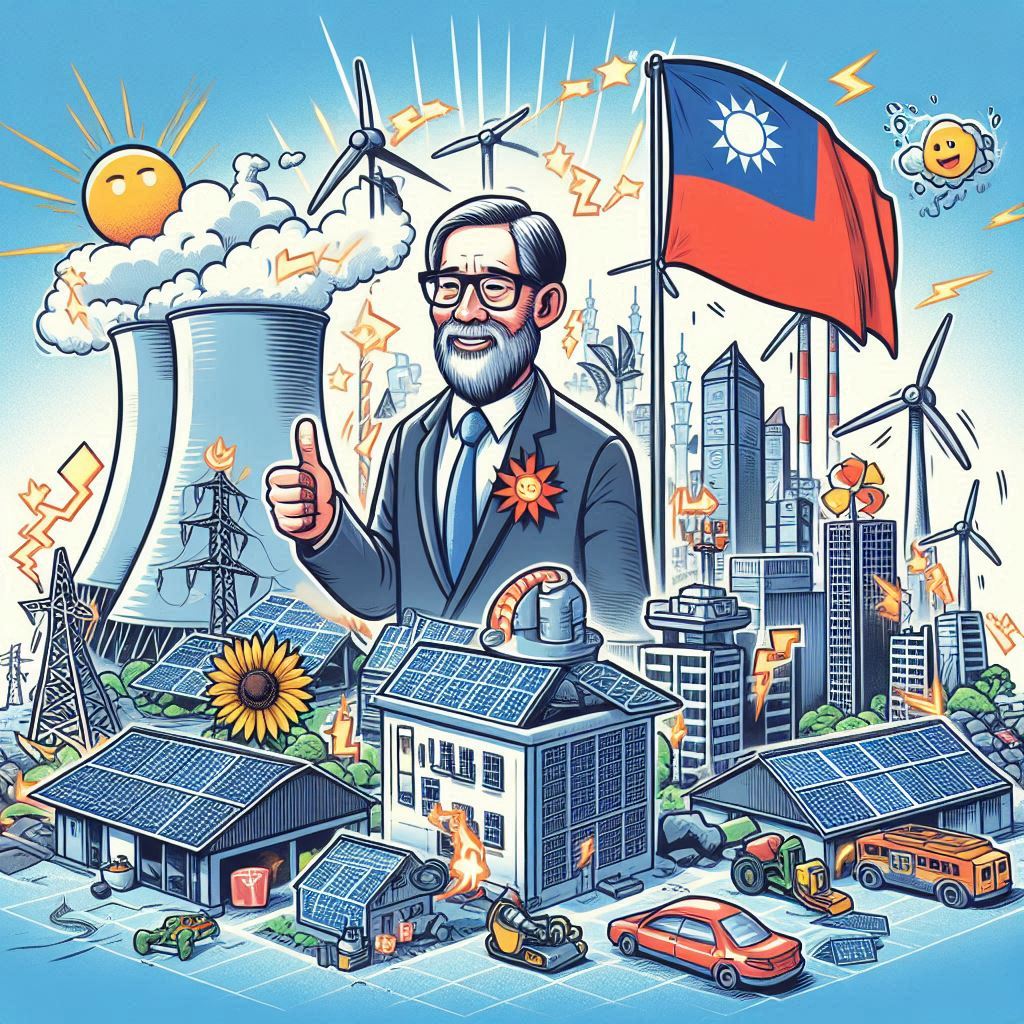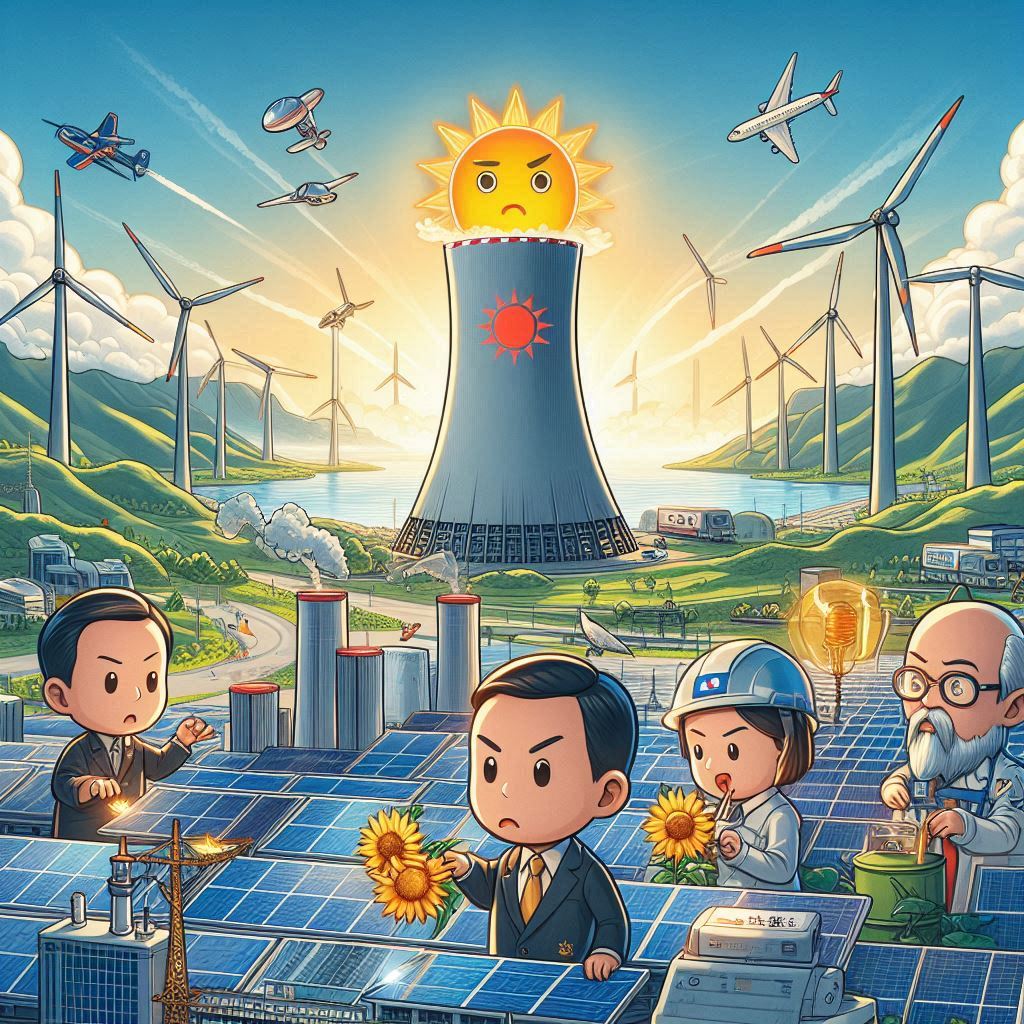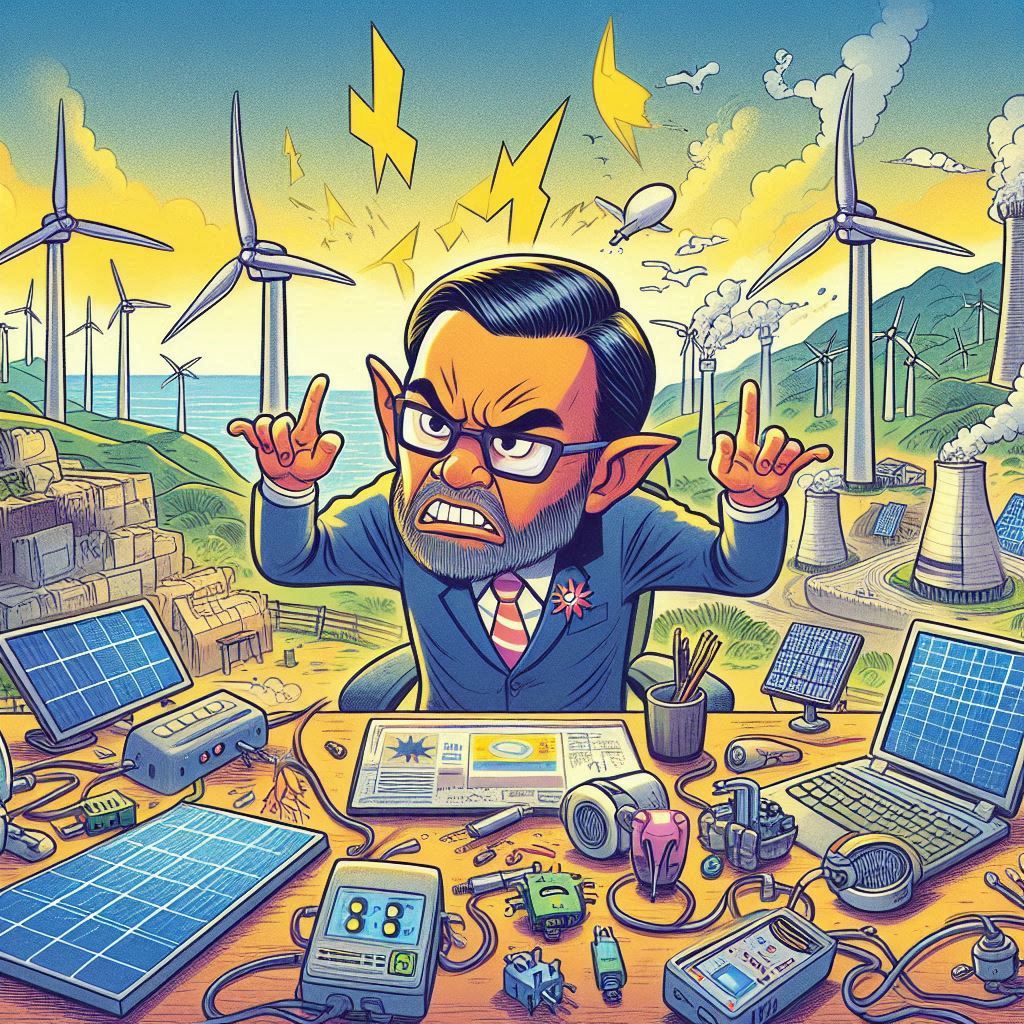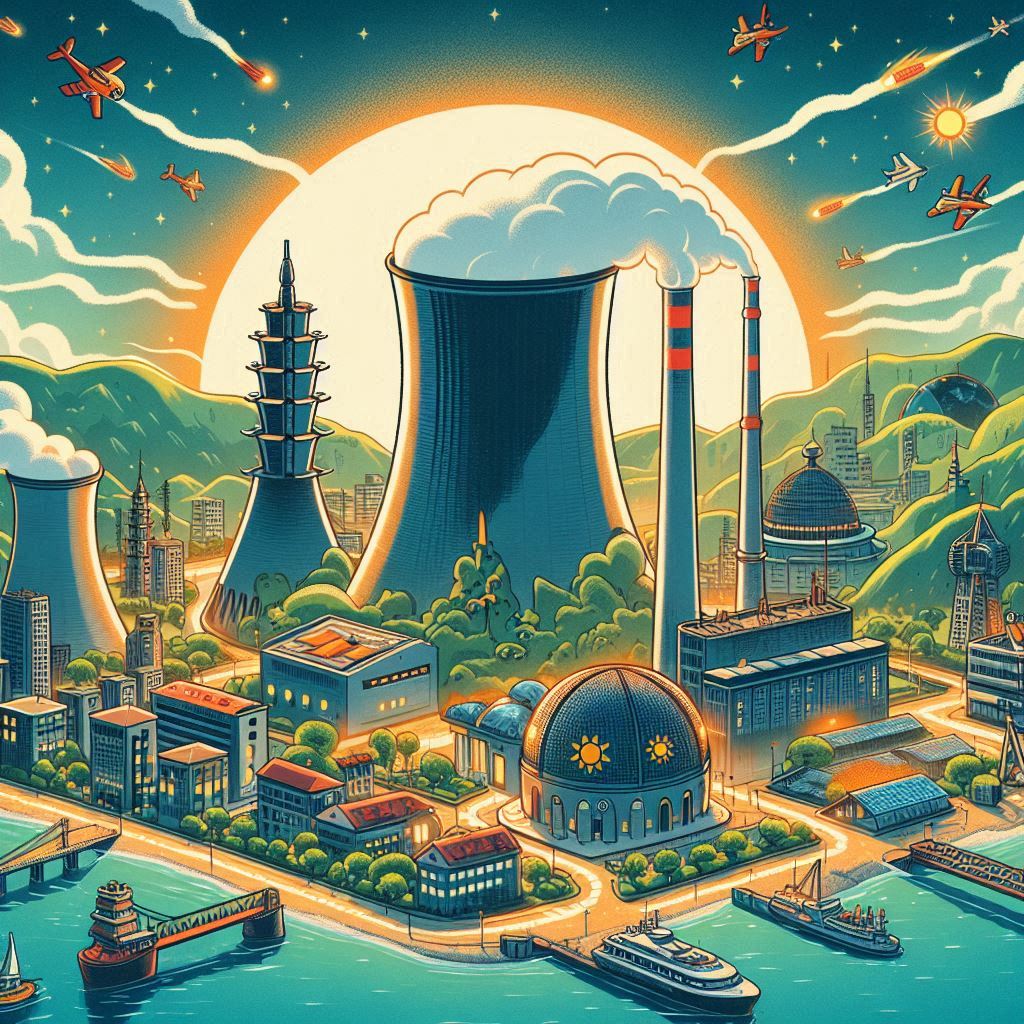發展綠能是未來趨勢,但卻無法補足核電的缺口。
綠能發電是指利用可再生能源來生產電力,這些能源包括風能、太陽能、水能、生物質能和地熱能等。綠能發電的主要特點是它不會產生大量的溫室氣體或其他污染物,對環境影響較小。許多國家發展風力和太陽能發電的原因在於它們是清潔、可再生的能源,不會排放二氧化碳等溫室氣體,有助於減少氣候變遷的影響。然而,這些能源也有一些挑戰和限制,例如:
間歇性:風力和太陽能發電依賴自然條件,風不吹或沒有陽光時就無法發電,這導致供電不穩定。
儲能技術:目前的電力儲能技術還不夠成熟和經濟,難以大規模儲存風力和太陽能產生的電力。
土地使用:大規模的風力和太陽能發電需要大量土地,可能會與農業用地或自然保護區發生衝突。
由於這些限制,一些國家轉向發展核能發電。核能發電具有以下優勢:
穩定性:核電廠可以穩定且大規模地生產電力,不受天氣影響。
低碳排放:核能發電過程中幾乎不排放二氧化碳,是一種相對清潔的能源。
高能量密度:核燃料的能量密度很高,一小量燃料就可以產生大量電力。
然而,核能發電也有其缺點,如核廢料處理、安全性問題(如核事故)等。
儘管台灣目前面臨嚴重缺電問題,發展綠能仍然有其必要性和優勢:
環境保護:減少對化石燃料的依賴,降低溫室氣體排放,保護環境和應對氣候變遷。
能源安全:多元化能源結構,降低對單一能源的依賴,提高能源安全性。
技術發展:推動綠能技術的創新和發展,有助於培養相關產業和就業機會。
國際承諾:履行國際社會對減少碳排放的承諾,提升國際形象。
發展綠能是應對未來能源挑戰的一種長期策略,即便面臨缺電壓力,也應該在多方面考量下持續推進。
目前的太陽能轉換效率和風力發電量都不足以彌補核電廠的全部產出。綠能是長期的策略,未來台灣仍然需要依靠核電。早期積極推廣太陽能的國家如德國,已經放棄這一個政策並停止大量補貼,轉而向法國購買核電。發展穩定性更高的新型小型核電才是未來的趨勢。然而,台灣依然投入大量納稅人的資金來發展無法填補核電缺口的綠能,這背後的原因值得深入討論。
Green energy generation refers to the production of electricity using renewable energy sources, such as wind, solar, hydro, biomass, and geothermal energy. The main characteristic of green energy generation is that it does not produce large amounts of greenhouse gases or other pollutants, making it less harmful to the environment.
Many countries develop wind and solar power because these are clean, renewable energy sources that do not emit carbon dioxide, helping to mitigate climate change. However, these energy sources also have challenges and limitations, such as:
Intermittency: Wind and solar power depend on natural conditions, so they cannot generate electricity when there is no wind or sunlight, leading to unstable power supply.
Storage technology: Current electricity storage technologies are not yet mature or economical enough to store large amounts of electricity generated by wind and solar power.
Land use: Large-scale wind and solar power generation requires significant land area, which can conflict with agricultural land use or natural reserves.
Due to these limitations, some countries have turned to developing nuclear power. Nuclear power has the following advantages:
Stability: Nuclear power plants can produce large amounts of electricity steadily, unaffected by weather conditions.
Low carbon emissions: The process of nuclear power generation emits almost no carbon dioxide, making it a relatively clean energy source.
High energy density: Nuclear fuel has a very high energy density, meaning a small amount of fuel can produce a large amount of electricity.
However, nuclear power also has its drawbacks, such as nuclear waste disposal and safety issues (e.g., nuclear accidents).
Despite Taiwan currently facing severe power shortages, there are still necessary benefits and advantages to developing green energy:
Environmental protection: Reducing dependence on fossil fuels, lowering greenhouse gas emissions, protecting the environment, and addressing climate change.
Energy security: Diversifying the energy mix to reduce reliance on a single energy source and enhance energy security.
Technological development: Promoting innovation and development in green energy technologies, which can help cultivate related industries and create job opportunities.
International commitments: Fulfilling international commitments to reduce carbon emissions and enhancing international reputation.
Developing green energy is a long-term strategy to address future energy challenges. Even in the face of power shortages, it should continue to be promoted with consideration of multiple aspects.
Currently, the conversion efficiency of solar power and the output of wind power are insufficient to replace all the production from nuclear power plants. Green energy is a long-term strategy, and Taiwan will still need to rely on nuclear power in the future. Early proponents of solar energy, such as Germany, have abandoned this policy and ceased large-scale subsidies, turning to nuclear power purchases from France instead. Developing more stable, new small nuclear reactors is the future trend.
However, Taiwan continues to invest significant taxpayer money into developing green energy that cannot fill the nuclear power gap. The reasons behind this warrant deeper discussion.




照片:DALLE3
- 1
- 2
- 3
- 4
